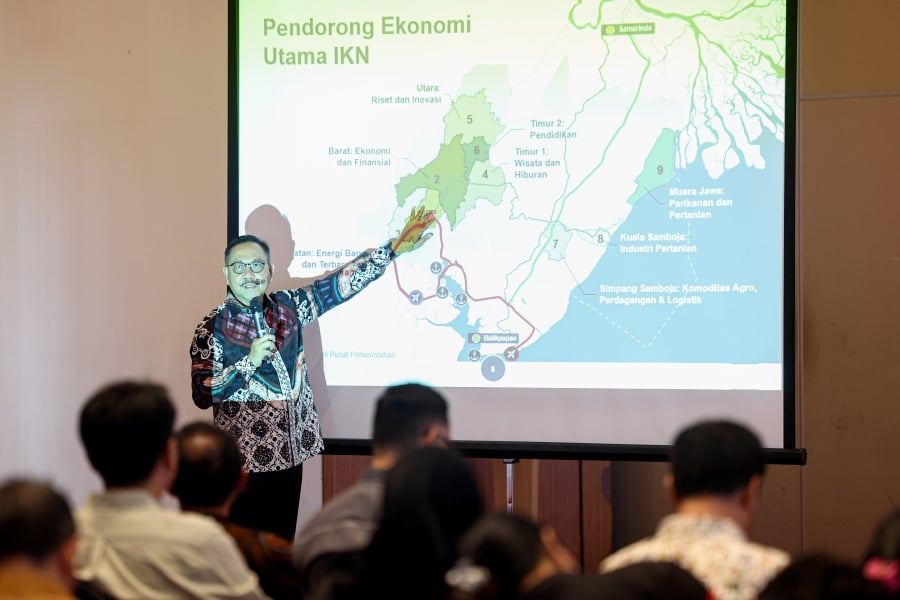JAKARTA: Indonesia's new administrative capital of Nusantara in Kalimantan will be a symbol of the country's growth and advancement.
Construction for the grand city began in July 2022, and Phase 1 of the project is reported to be about 71 per cent finished.
By 2045, Nusantara aims to be a green and smart city complete with flying taxis, autonomous vehicles, logistical drones, and robots.
Nusantara Authority chairman Bambang Susantono said apart from being green and a smart city, "Ibu Kota Nusantara" will also centre around inclusivity, resilience, and sustainability.
"Nusantara already has a nursery to grow trees to support reforestation, with the capability of growing a whopping 15 to 20 million trees per year.
"And this city will not be a city just for the rich. We have planned for Nusantara to be a child-friendly and women-friendly city by collaborating with the United Nations Children Fund (Unicef) and the UN Entity for Gender Equality and the Empowerment of Women, among others."
He said this at the "Jakarta's future after IKN: Environmental Challenges and Global City Competition" National Seminar in conjunction with National Press Day Indonesia in Ancol, today.
Key infrastructure projects, including a hospital, a school, a solar power plant, a hotel, and a military command office are in the midst of construction.
The total investment value from these projects has reached 47.5 trillion Indonesian rupiah, equivalent to about US$30.4 billion.
Bambang said there was growing international interest in Nusantara and this was reflected in the number of Letters of Intent (LOI) the country has received from companies outside Indonesia, including Malaysia.
In December, Malaysian Ambassador to Indonesia Datuk Syed Md Hasrin Tengku Hussin said several Malaysian companies have submitted LOI, which were now being evaluated by the Nusantara Capital Authority.
"Next week, there will be more groundbreaking ceremonies for the banking sector and also education facilities."
In Phase 1 of the project (2022-2024), Indonesia aims to have about 260,000 residents for early-stage transfer of government functions.
By Phase 4 (2040-2045) Nusantara, with over 250,000 hectares of land, would only have a population of less than two million people.
"We don't want to repeat the mistake of other cities in Indonesia where there is overcapacity. We want to make it a livable city," said Bambang.
With the administrative capital moved to Nusantara, Jakarta will remain as the country's financial and business hub.
"Nusantara will take on the role as the nation's development centre outside of Java," he added. — BERNAMA


